Accordingly, through the trade union congresses at all levels, the Presidium of the Vietnam General Confederation of Labor has received 445 opinions from workers, civil servants, laborers, and trade union officials nationwide expressing their thoughts, aspirations, proposals, and recommendations to the Party, the State, and the Vietnam General Confederation of Labor. Previously, many proposals and recommendations were raised at the Prime Minister's annual dialogue programs with workers and laborers, the 2023 Labor Forum chaired by the National Assembly Chairman, and many other forums. Competent authorities are resolutely researching, proposing, and directly implementing solutions to resolve the recommendations and proposals of union members and laborers.
At the 13th Congress of the Vietnam Trade Union, the Executive Committee of the Vietnam General Confederation of Labor synthesized and selected a number of major issues and reported them to the Party and State leaders and delegates attending the Congress. These are:
Firstly, on promulgating, organizing implementation, evaluating and summarizing the Party's Resolutions and Directives on workers and Trade Unions.
The Politburo and the Secretariat continue to pay attention to directing, inspecting, urging the implementation and organizing the summary and evaluation of the implementation results of Resolution No. 20-NQ/TW dated January 28, 2008 of the 10th Party Central Committee and Conclusion 79-KL/TW on promoting the implementation of Resolution No. 20-NQ/TW on "Continuing to build the Vietnamese working class in the period of promoting industrialization and modernization of the country".
Propose that the Secretariat pay attention to inspecting the implementation of Directive No. 52-CT/TW dated January 9, 2016 of the Secretariat on strengthening the Party's leadership in improving the cultural and spiritual life of workers and laborers in industrial parks and export processing zones and Resolution No. 02-NQ/TW dated June 12, 2021 of the Politburo "On innovation of organization and operation of Vietnam Trade Union in the new situation"; orient and have a plan to summarize 10 years of implementing Directive No. 52-CT/TW, 5 years of implementing Resolution No. 02-NQ/TW by 2026.
The Secretariat studies and issues a directive on strengthening the Party's leadership in political, ideological and legal education for workers. At the same time, when amending the Labor Code in 2019, it is necessary to stipulate that each year, employers must set aside at least 1 day for workers and employees to study politics and law; encourage units to negotiate for more than 1 day.
Second, on the development of policies and laws related to workers and trade unions.
It is recommended that the National Assembly and the Government pay attention to promoting the improvement of the quality of law-making activities, including laws related to the rights, interests and responsibilities of workers and trade union activities. Draft laws need to be carefully surveyed, with wide consultation from directly affected subjects; regulations must ensure the harmony of interests of workers, employers and the State, pay attention to protecting vulnerable groups, promote balance and harmony in labor relations; help workers enjoy the fruits worthy of their contributions in nearly 40 years of national renovation.
Third, the Party and State pay attention to the specific characteristics of the Trade Union organization in the process of leading, directing, and coordinating activities.
The Vietnam Trade Union is both a socio-political organization in our country's political system and an organization that represents, cares for, and protects the legitimate and legal rights and interests of workers: (1) The Trade Union is assigned to manage finances and assets according to the vertical system, from the General Confederation down to the grassroots trade unions. The Trade Union collects its own funds and union dues to organize activities and ensure the maintenance of a full-time trade union staff, all of whom receive salaries from the General Confederation. This is also a common practice in countries around the world to ensure that the Trade Union is independent of state agencies according to international labor standards. Therefore, in addition to cadres doing movement work to serve the organization, the Trade Union urgently needs a force of specialized cadres to do financial work. (2) The number of union members and grassroots trade unions is increasing rapidly due to the requirement to promote industrialization and modernization of the country; (3) Trade unions face competition for membership and organization of activities in a context where the law allows the establishment of workers' organizations in enterprises. This is a new, difficult, heavy, and unprecedented task, requiring trade unions to strongly innovate, ensure strong enough resources and comprehensive, absolute, and regular leadership of party committees at all levels, and active and responsible coordination of authorities at all levels and organizations in the political system.
Fourth, the Party and State ensure the operating conditions of trade union organizations in the new context.
With the characteristics of self-sufficiency in revenue and expenditure in the entire system, members and organizations developing rapidly and continuously, and tasks becoming increasingly difficult and heavy, the Trade Union system requires human resources to be sufficient in quantity and constantly improving in quality to be able to complete assigned tasks well in the new context. Trade unions at all levels strongly support the Party and State's policy of reducing staff and streamlining the apparatus in the spirit of "reducing redundant places and weak people". In recent years, trade unions at all levels have closely followed the general direction and seriously implemented staff reduction in the entire system. However, compared to the requirements of promoting union member development, establishing grassroots trade unions and improving the quality of trade union activities, the current staff of specialized trade union officials is in great shortage, many trade unions at the grassroots level do not have enough human resources to go to enterprises to mobilize, develop union members, and establish grassroots trade unions; A significant proportion of district-level Labor Federations have only 3-4 full-time union officials, or even only 2 officials, leading to difficulties in assigning tasks (each union agency needs to assign 1 accountant and 1 treasurer to concurrently hold other jobs), while it is difficult to assign a chairman or vice chairman to concurrently hold this professional title.
In particular, some local Party committees select cadres to be union leaders that are not suitable to the cadres' abilities, strengths, and the increasingly high demands of the union organization; in some places, in a short period of time, many key union cadres, especially the leaders, have changed, leading to the quality of the union organization's activities being affected.
The recruitment of union officials in localities is organized at the same time as the recruitment of officials for Party agencies, the Fatherland Front, and political organizations with the same basic requirements, standards, and conditions based on Party regulations and State laws, which are no longer suitable for the increasingly deep expertise of union officials in the face of new requirements. Union activities are increasingly integrated, mainly implemented in non-state enterprises, requiring union officials to have the necessary knowledge, skills, and experience; this is suitable for the recruitment of union officials who are mainly grown from the grassroots, especially grassroots union presidents in enterprises.
At this Congress, the Executive Committee of the Vietnam General Confederation of Labor and the Congress respectfully request the leaders of the Party, the State, and relevant agencies to pay attention to the mechanism of allocating staff in accordance with the number to ensure meeting the requirements of the tasks and allow the Vietnam General Confederation of Labor to soon pilot the implementation of the mechanism of recruiting cadres from the source of union cadres who have grown up at the grassroots level, in the workers' movement according to Resolution No. 02-NQ/TW dated June 12, 2021 of the Politburo "On innovation of organization and operation of Vietnam Trade Union in the new situation".
Along with paying attention to, supplementing the payroll and piloting the mechanism for recruiting union officials, we respectfully request that the Party and State, in the upcoming amendment of the Trade Union Law, continue to pay attention to maintaining the trade union budget as in the current Law, ensuring strong enough resources for the Vietnam Trade Union to care for and protect the legitimate and legal rights and interests of workers in the context of trade union competition; promulgate regulations to further enhance the role and position of the Trade Union organization, especially allowing trade unions to have the right to independently (not just participate in) monitoring the compliance with laws related to workers by employers; the responsibility of employers in coordinating with trade unions to implement democratic regulations at the grassroots level to ensure the right of workers to be masters.
Fifth, the Party and State continue to issue policies and guidelines to promote sustainable employment, living wages, and ensure social security and welfare for workers.
It is necessary to make a breakthrough in organizing and implementing policies on education and training, improving the quality of human resources. Innovating management to improve the quality and effectiveness of vocational education, developing the labor market information system, implementing training, retraining, additional training, skills training, and technology training according to the requirements of the 4.0 revolution for workers.
Promote domestic and foreign investment attraction, especially attracting investment projects of enterprises with high technology, good management capacity, green economic development, circular economy, and social responsibility. Limit attracting labor-intensive enterprises, low awareness of law compliance, and low social responsibility.
Continue to research and innovate the regional minimum wage regime, aiming for a living wage for workers.
Mobilize social resources to promote the project of one million social housing apartments for low-income earners and industrial park workers in the 2021-2030 period; pay attention to planning and building schools and medical facilities in places with a large number of workers; perfect the law on social insurance and health insurance, help workers clearly see the benefits, have confidence in staying with the insurance system for a long time, and ensure social security benefits for workers not only while they are working but also when they retire.
Sixth, promptly research, revise and adjust working hours and rest hours of workers and laborers.
The Government assigned the Ministry of Labor, War Invalids and Social Affairs to preside over and coordinate with ministries and branches to study and promptly implement the content of the Resolution of the 8th session of the 14th National Assembly (Resolution No. 101/2019/QH14) "... The Government is assigned to study and propose reducing normal working hours for employees to less than 48 hours/week based on the socio-economic development situation and report to the National Assembly for consideration at an appropriate time. ", aiming to ensure fairness between working hours of employees in the state administrative agency sector (40 hours/week) and the enterprise sector (48 hours/week); creating conditions for employees to rest, reproduce their labor, take care of their children, and ensure family happiness.
Research on increasing annual holidays at an appropriate time, because the number of holidays in our country is 5-6 days lower than the average of Southeast Asian countries and the world. Research on adding 2 days off for National Day (from September 2-5), creating opportunities for workers to take their children to school on the first day of school. This is a very earnest wish of the majority of workers with school-age children.
Seventh, strengthen state management, limit the situation of employers violating the law against employees.
Regularly inspect, examine and strictly handle enterprises that violate laws on labor, trade unions, social insurance, and occupational safety and hygiene, especially enterprises that do not or are late in paying wages, evade social insurance payments, cause work accidents, and cause difficulties for trade union activities and workers.
Overcome the situation of ignoring or lightly handling enterprises that violate the law related to the rights and interests of workers by some local authorities. Ensure strict and lawful management of the establishment and operation of workers' organizations in enterprises, not allowing the establishment and operation to be used to infringe on workers' rights, cause difficulties for enterprises, and disrupt security and order.
The Government should soon have a policy to submit to competent authorities for specific policies to resolve and ensure the rights of more than 200,000 workers who are owed social insurance due to business dissolution, bankruptcy, owners fleeing or restructuring.
Eighth, further strengthen the leadership responsibility of Party committees at all levels and the coordination of the government, the Fatherland Front, unions, organizations, and enterprises in trade union activities.
Leaders of Party committees at all levels, especially in localities and sectors with a large number of workers and complex labor relations, need to periodically work with the standing committees of trade unions at all levels; select cadres with capacity, qualifications, understanding of workers and trade unions, a firm grasp of policies and laws, and good methods of mass mobilization to be trade union cadres, ensuring stability for at least half of the term.
Focus on planning, training, fostering, and introducing to Party committees at all levels the necessary proportion of cadres who have grown up from workers, the workers' movement, and trade unions. Localities with a large number of workers need to pay attention to the structure of the president of the labor federation as a standing member of the Party committee in accordance with the spirit of Resolution No. 20-NQ/TW.
Authorities at all levels actively cooperate with trade unions in caring for the lives and protecting the rights of workers; propagating and disseminating the law; and resolving collective labor disputes. Government leaders periodically hold dialogues to listen to and resolve pressing issues of workers, laborers, and trade unions.
The Fatherland Front, political organizations, organizations and enterprises need to more actively coordinate with trade unions at all levels in caring for, representing and protecting the rights and interests of union members, associate members and workers./.
Source link



![[Photo] Enjoy the Liuyang Fireworks Festival in Hunan, China](https://vphoto.vietnam.vn/thumb/1200x675/vietnam/resource/IMAGE/2025/10/26/1761463428882_ndo_br_02-1-my-1-jpg.webp)
![[Photo] Nhan Dan Newspaper displays and solicits comments on the Draft Documents of the 14th National Party Congress](https://vphoto.vietnam.vn/thumb/1200x675/vietnam/resource/IMAGE/2025/10/26/1761470328996_ndo_br_bao-long-171-8916-jpg.webp)




















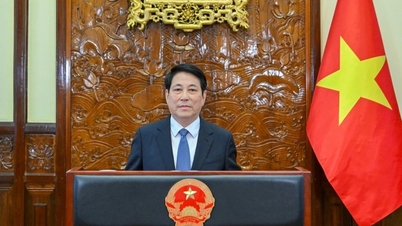


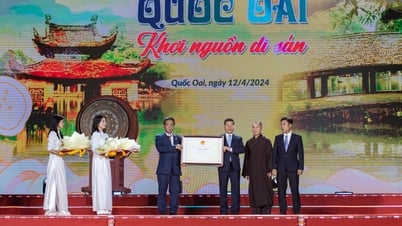
![[Photo] Prime Minister Pham Minh Chinh attends the opening of the 47th ASEAN Summit](https://vphoto.vietnam.vn/thumb/1200x675/vietnam/resource/IMAGE/2025/10/26/1761452925332_c2a-jpg.webp)
![[Photo] General Secretary To Lam received the delegation attending the international conference on Vietnam studies](https://vphoto.vietnam.vn/thumb/1200x675/vietnam/resource/IMAGE/2025/10/26/1761456527874_a1-bnd-5260-7947-jpg.webp)































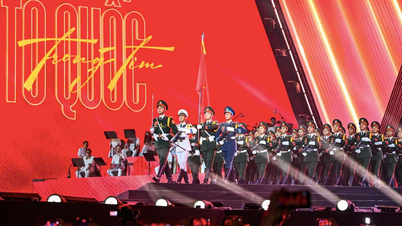



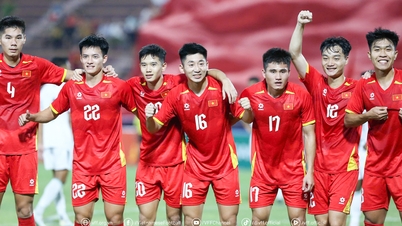
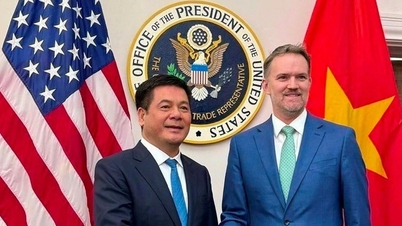
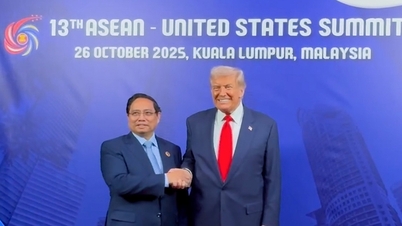
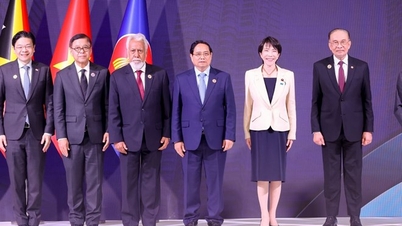

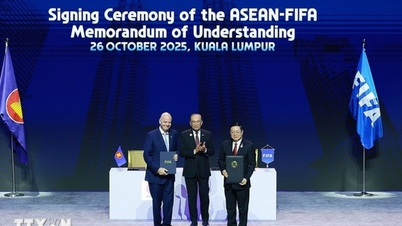

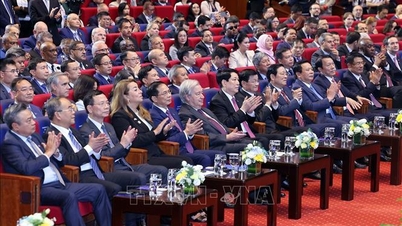

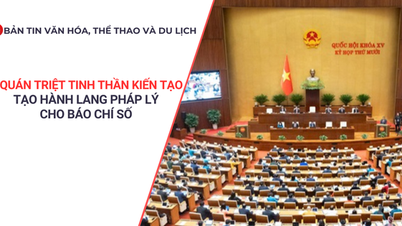
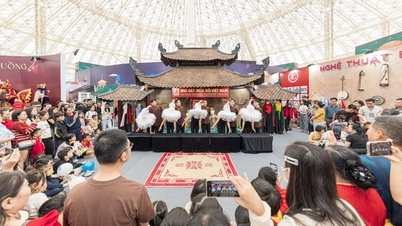


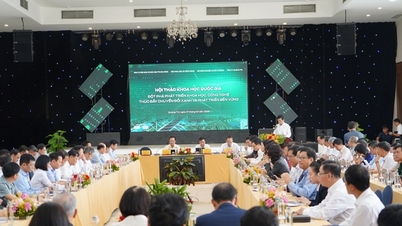
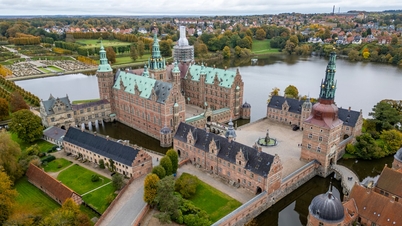





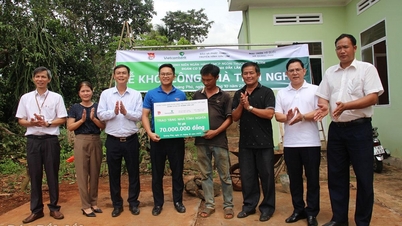



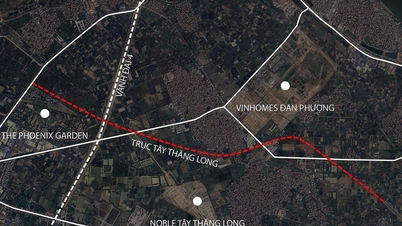
















Comment (0)